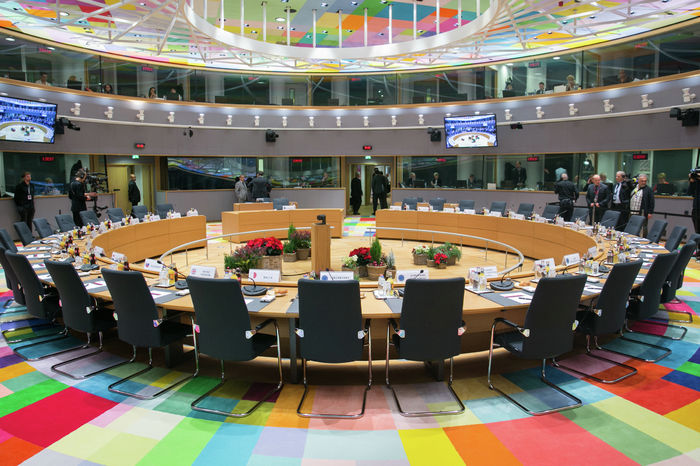‘Which Narrative Wins?’: Centre for Geopolitics Panel on the Pandemic’s Legacy
Panelists from across the University discussed the potential cooperative or competitive global consequences of the coronavirus

An interdisciplinary panel on Monday (18/05) discussed the domestic and international ramifications of Covid-19 in a virtual event hosted by Peterhouse and the Centre for Geopolitics.
Chaired by Bridget Kendall, former BBC Diplomatic Correspondent and Master of Peterhouse, the panel consisted of five Cambridge academics whose discussion of the consequences of the coronavirus often returned to competing narratives of global competition or solidarity.
Joining Ms Kendall was Professor of Infectious Diseases Andrew Lever; novelist and Peterhouse Director of Studies in English Dr Jennifer Wallace; Professor of Philosophy and NHS ethics panel member Prof Richard Holton; artist and Research Fellow in Philosophy Dr Daisy Dixon; and Centre for Geopolitics Director Professor Brendan Simms.
A central debate over the pandemic’s legacy emerged midway through Monday’s event when Ms Kendall asked Prof Simms about what a potential future international order might look like. Citing his belief that the impact of the virus “has tended to be to reinforce existing patterns” in geopolitics, Simms forecast increasing global divisions along familiar fault lines.
He pointed in particular to an “accentuated… sense of rivalry” between China and the US, a “failure of solidarity” in the European Union, and “harder negotiation and possibly a no-deal” for Brexit.
Dr Wallace disagreed with Simms’s predictions and argued that the virus would bring international cooperation on medical, economic, and environmental issues. She asserted that “the need to be more internationalist and not to retreat behind our borders seems to be one of the lessons we’re learning from this crisis.”
She went on to describe the possibility of a no-deal Brexit as “unfathomable.”
Responding in particular to points raised around China, Simms summarised a ‘division versus cooperation’ debate alluded to by other panelists. He noted that “the interesting question for the future, geopolitically here, will be which narrative wins?”
Weighing in from a scientific perspective, Prof Lever also described “two conflicting influences” on the question of cooperation. On the one hand, he argued that scientists’ international collaboration during this crisis has been “unprecedentedly good” and could support an optimistic outlook on information sharing.
On the other hand, he noted that many countries have begun to regret their dependence on global supply chains for items like “testing equipment, reagents, [and] personal protective equipment.” Feeling “vulnerable,” some of these countries have adopted a “nationalistic viewpoint” on future self-sufficiency which would hinder economic and manufacturing partnerships.
Later in the conversation, Prof Holton offered his own prediction of division when asked for a philosophical perspective on loss during the crisis. He suggested that the most probable loss is the very “welling up of solidarity” that Wallace and Lever had mentioned.
For Holton, the current moment is a “lovely last gasp” before “people suddenly become an awful lot nastier and an awful lot more selfish.” Like Simms, Holton pinned this prediction on recent political trends away from institutional cooperation.
The relationship between the pandemic and the arts was also a common theme at Monday’s panel. In a comment after the event, Prof Simms noted that such an interdisciplinary approach reminds us that “we can draw from art, literature and history for inspiration as well as on science for information.”
Dr Dixon noted that the virus has posed immense challenges for artists, describing the particular anxieties of finances, education, and “day-to-day creativity.” She further argued that as they navigate cancelled commissions and awkward art lessons over Zoom, artists are also looking with concern toward a future where collectors and curators may not be able to support the art world as they once did.
More positively, Dixon suggested that online art galleries have introduced a new way to “understand and appreciate a work of art.”
On the subject of the arts, Dr Wallace noted that many great works of literature have reflected on or been written in times of plague. Later in the conversation, she asserted that the arts can “reach places that news seem unable to reach. We need the arts to remind us about what is valuable about being human.”
Ms Kendall concluded the event by asking whether the virus represented “a new chapter.” While most panelists agreed on the crisis’s long-term effects, Dr Holton offered a poignant reminder of future challenges. The virus, he argued, “may pale into insignificance compared to what we’re doing to the climate.”
A full recording of the event is available on the Peterhouse and Centre for Geopolitics websites.
 Comment / Cambridge is a masterclass in nostalgia11 March 2025
Comment / Cambridge is a masterclass in nostalgia11 March 2025 News / University Library electronic legal deposit systems restored12 March 2025
News / University Library electronic legal deposit systems restored12 March 2025 News / Vet School saved?7 March 2025
News / Vet School saved?7 March 2025 News / Pro-Palestine supporters urge Cambridge to end injunction bid11 March 2025
News / Pro-Palestine supporters urge Cambridge to end injunction bid11 March 2025 News / Water restored to Caius accommodation block after days of disruption 13 March 2025
News / Water restored to Caius accommodation block after days of disruption 13 March 2025





